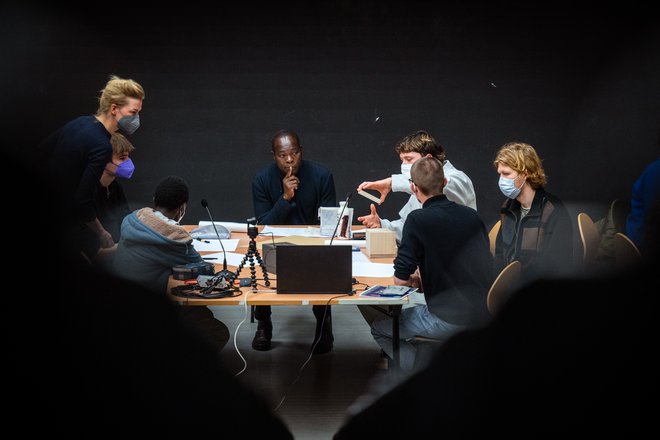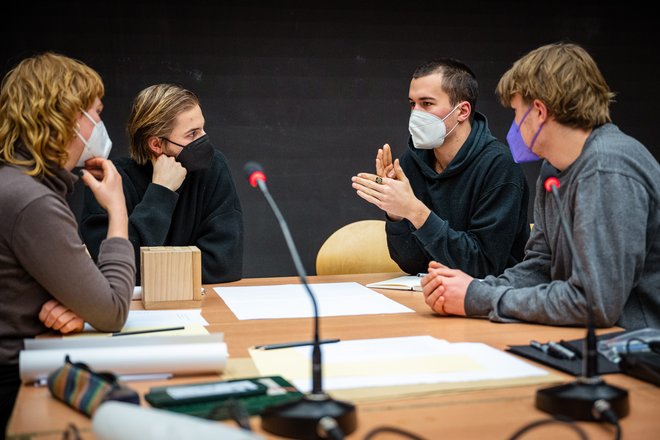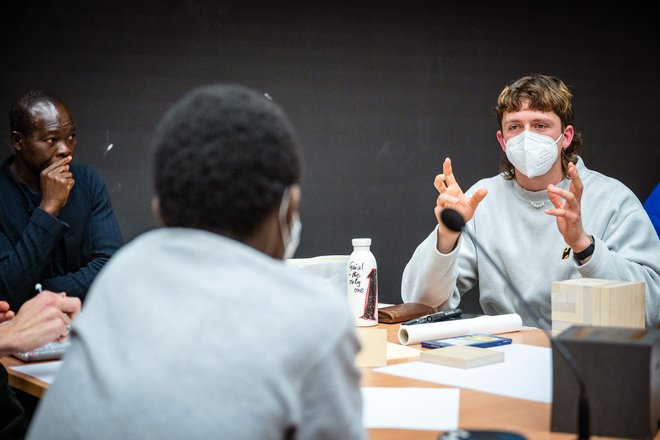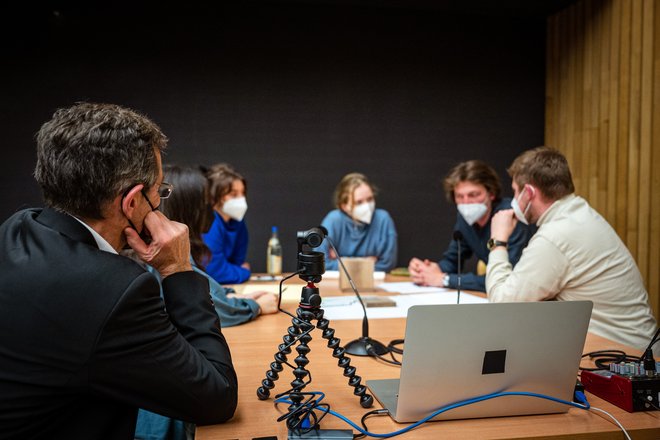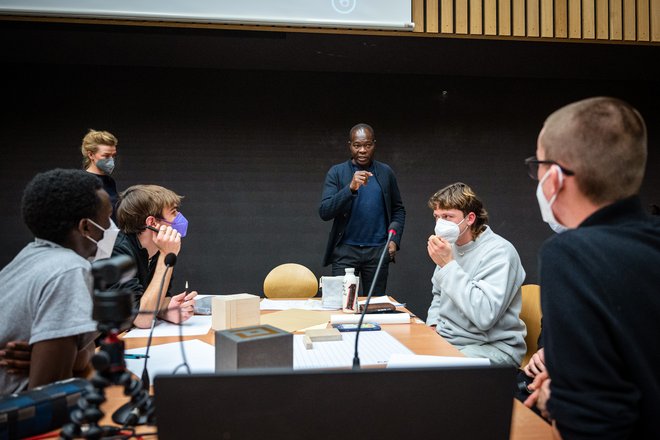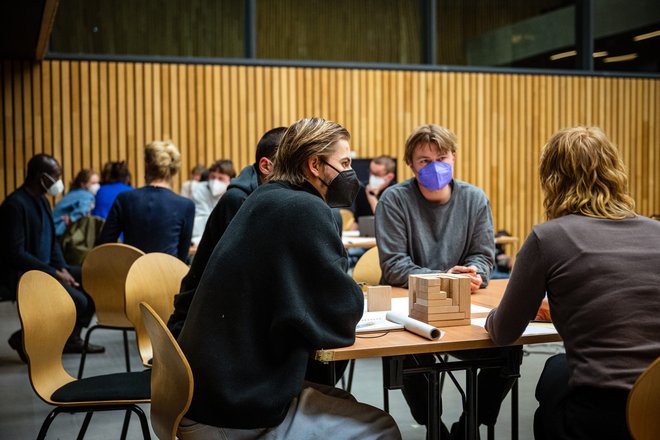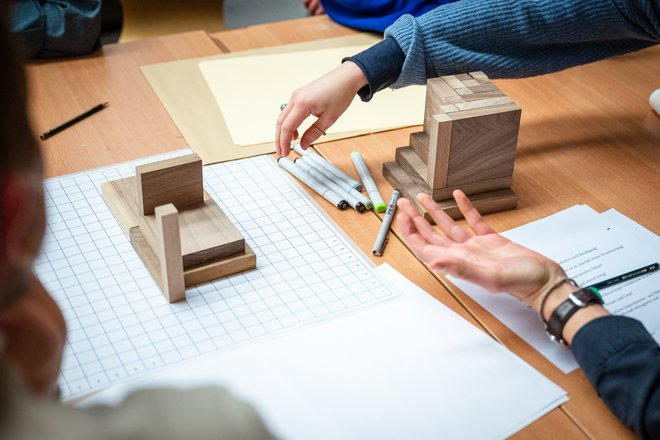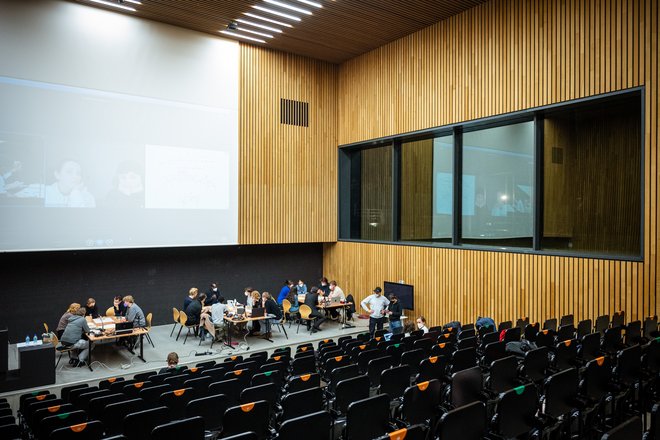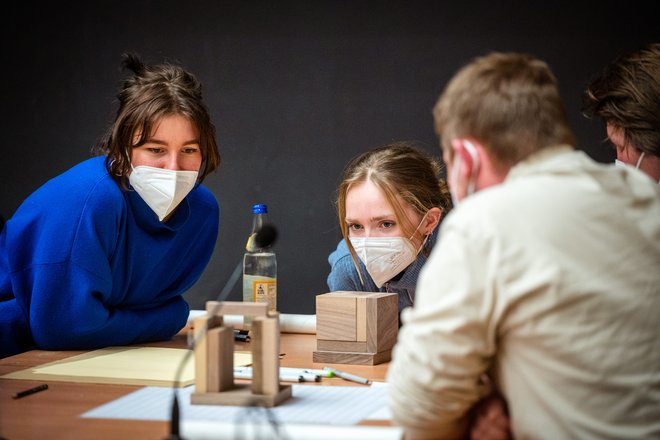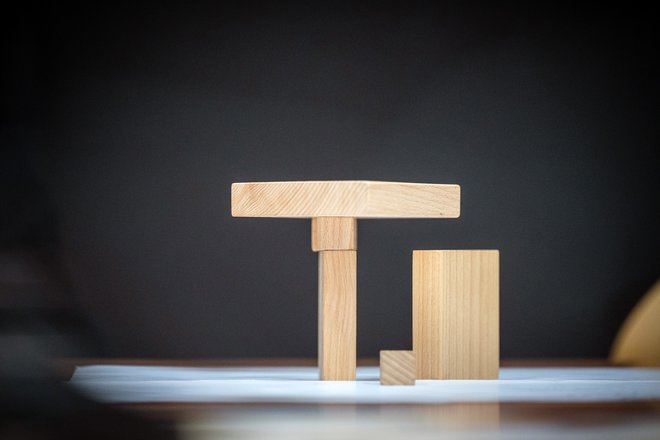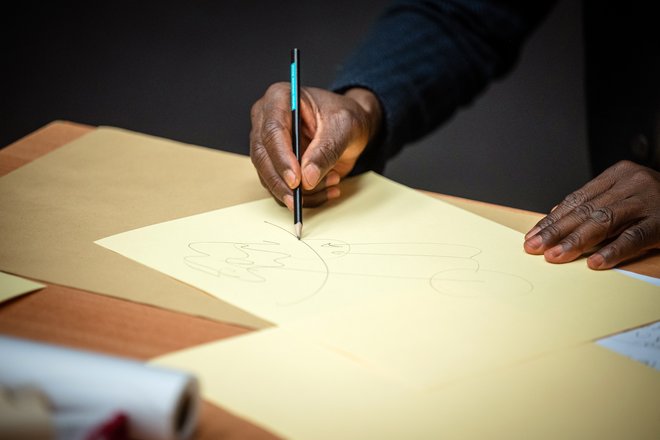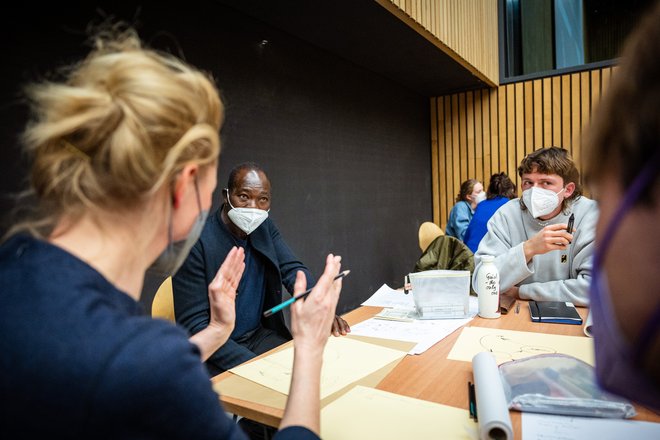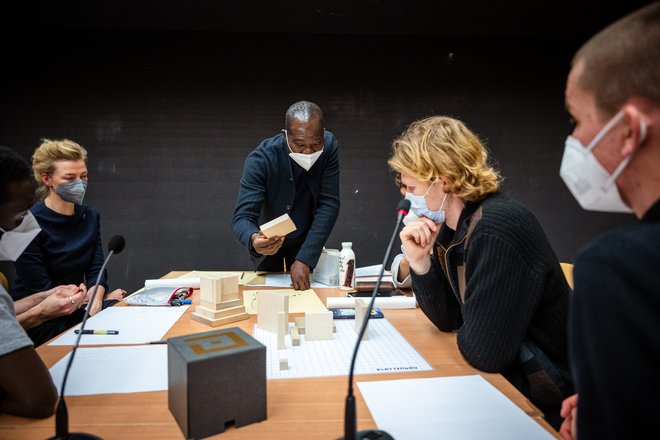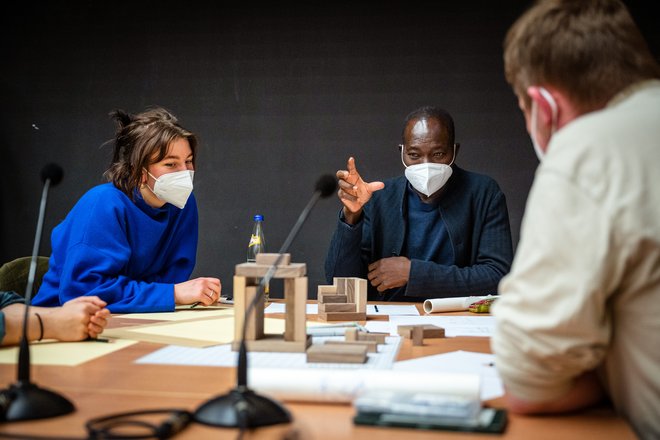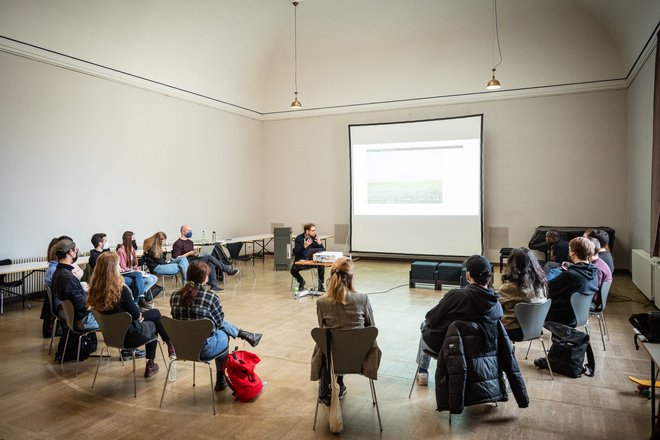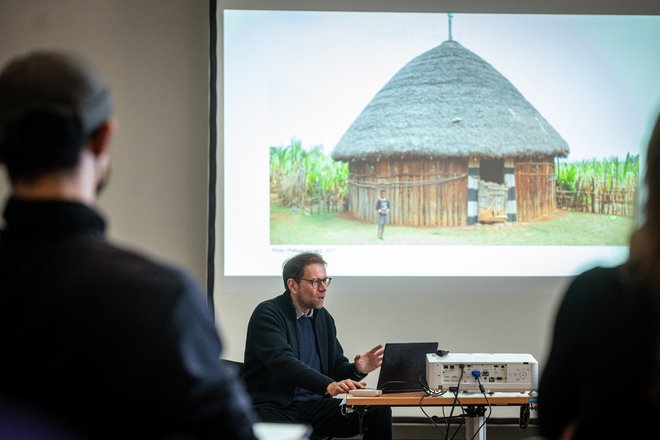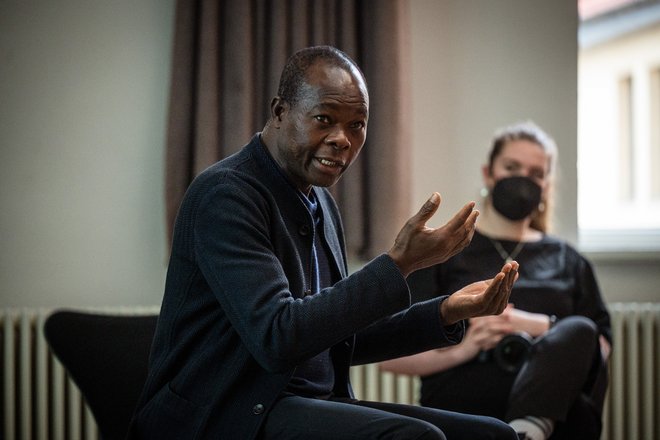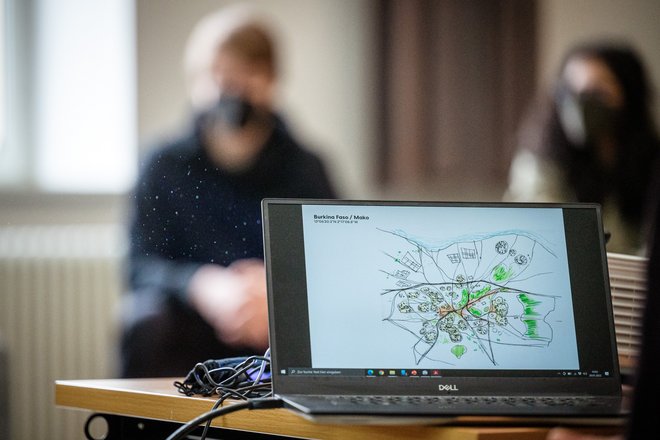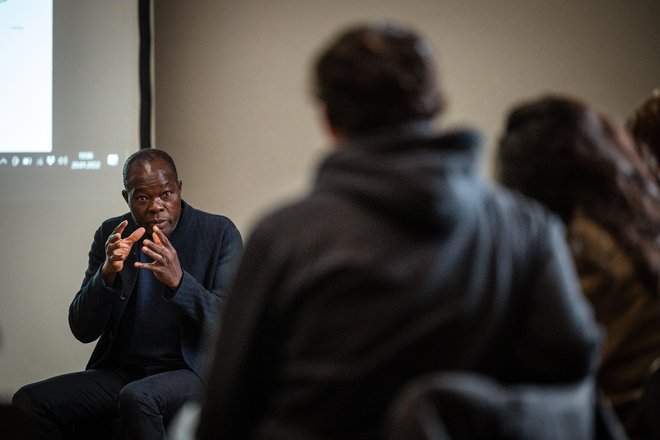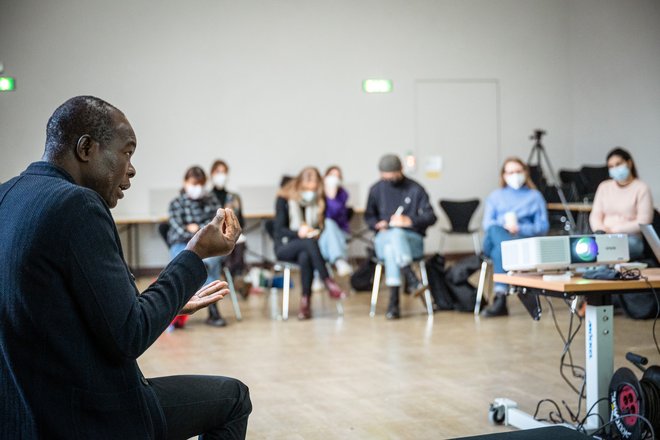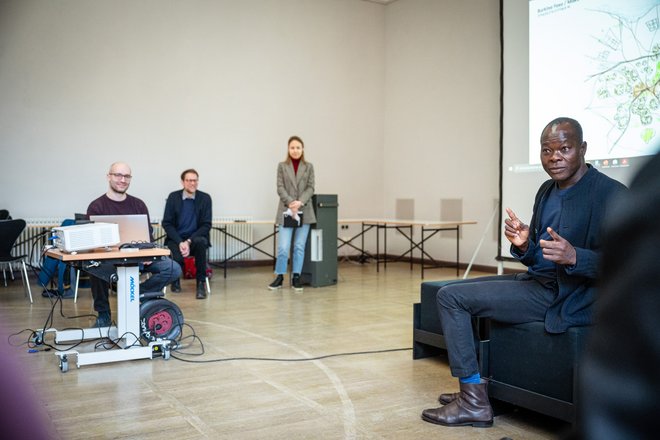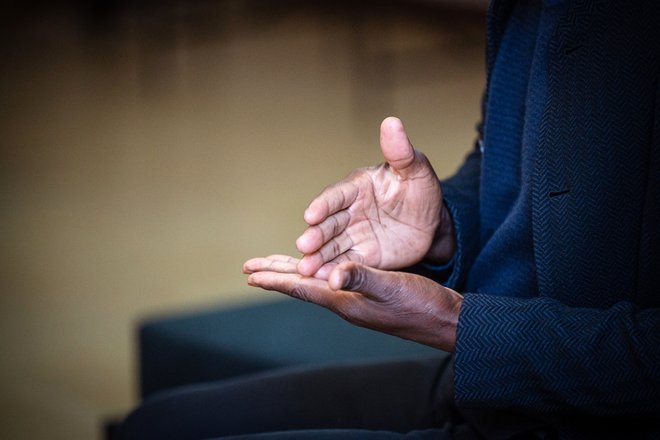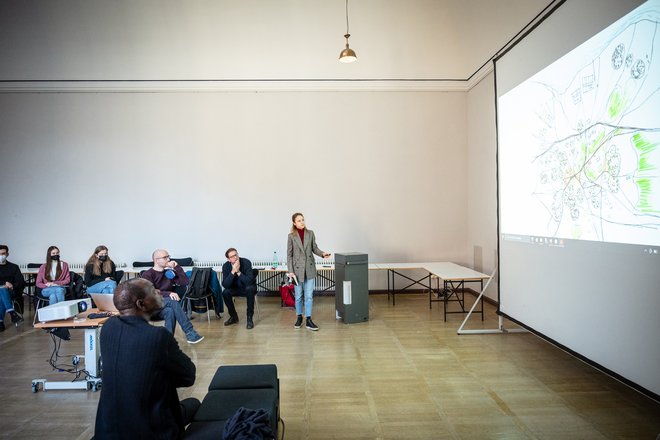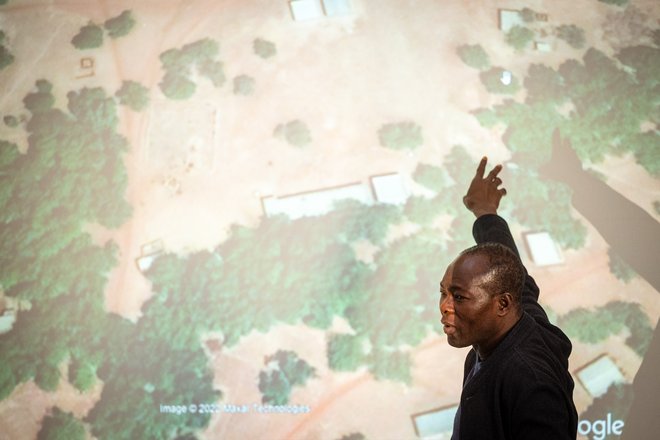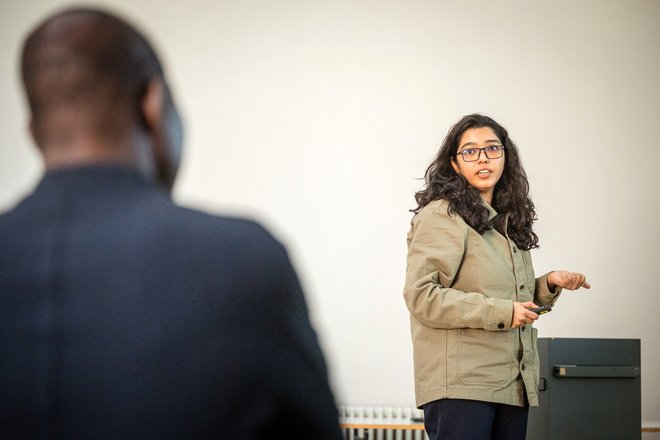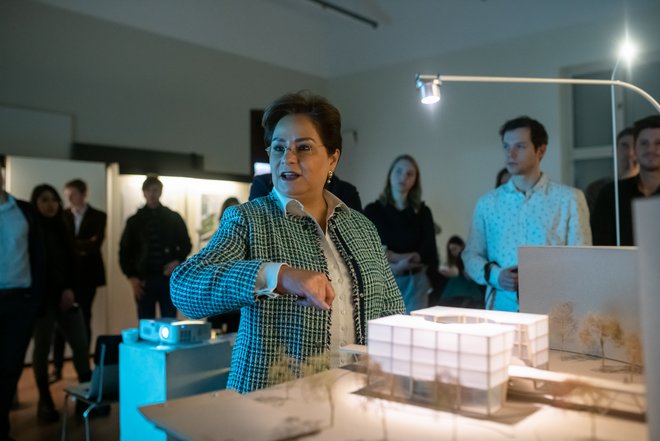- Official Instagram account of the Bauhaus-Universität Weimar
- Official LinkedIn account of the Bauhaus-Universität Weimar
- Official Vimeo channel of the Bauhaus-Universität Weimar
The Bauhaus-Universität Weimar first established the Bauhaus Guest Professorship for the 2018/2019 winter semester. The Guest Professorship is awarded once a year to outstanding personalities for the duration of one semester. It is intended to reflect and critically renew the ideas and impulses of the historical Bauhaus. It follows the spirit of the 1919 State Bauhaus by taking up pressing social issues and providing new, creative and unexpected approaches for discussion. This means, among other things, bringing together science, technology and art in order to work together to shape the present. Bauhaus Guest Professors give public lectures, take part in panel discussions and lead workshops and other events. The lectures are part of the inter-semester lecture and podium series »Mensch Macht Moderne«.
2023 Sommer Semester – Jane Bennett
Political scientist and philosopher Prof. Jane Bennett's primary research interests are in political theory. Her research interests include ecological philosophy, political thought in the United States, political rhetoric and belief, and contemporary social theory. During her Bauhaus Guest Professorship, she hopes to engage with students and the university public. Bennett will offer two lectures as well as two workshops together with the doctoral candidates from the Graduiertenkolleg in Media Anthropology (GRAMA) of the Faculty of Media.
Personal Profile
She is one of the founders of the political theory journal »Theory & Event« and was the editor of »Political Theory: An International Journal of Political Philosophy«. Professor Bennett is Affiliate Professor of Political Science at the University of Copenhagen, and has held fellowships at Oxford University (Keble College), the Birkbeck Institute for the Humanities (University of London) and at the Humanities Research Centre of the Australian National University. She was a senior fellow at the International Research Institute for Cultural Technologies and Media Philosophy (IKKM) in 2017 from April to June, where she carried out research for the »Über das Einwirken« project. Since 2019 she has held the Andrew Mellon Professorship of the Humanities at Johns Hopkins University in Baltimore, with appointments in the Department of Comparative Thought and Literature and also in the Department of Political Science.
Her works include Influx and Efflux: Writing up with Walt Whitman (2020); Vibrant Matter (2010); and The Enchantment of Modern Life (2001).
2021/2022 Winter Semester – Diébédo Francis Kéré
Prof. Diébédo Francis Kéré's expertise in both ecologically and socially sustainable architecture will inspire and influence the lectures and workshops within the scope of the Bauhaus guest professorship. Holistic methods, circular economy, modification of materials - these are just some of the various topics that the architect will bring to the Bauhaus-Universität Weimar during his guest professorship, and on which he will exchange ideas with students, lecturers and staff. Also central to his work is the focus on locality, reflected not only in his predilection for using local materials like clay or wood, but also in the participation of the local population.
Personal Profile
Diébédo Francis Kéré first drew attention to his visionary work as an architect when he designed the Gando Primary School in his hometown in Burkina Faso and got the locals involved in the construction. He was still studying at the Technical University of Berlin at that time and was awarded the prestigious Aga Khan Award for Architecture for his work. In 2005 he established the architectural office »Kéré Architecture«. Since then, Prof. Kéré has become one of the most important contemporary architects internationally; his work is inspired by the idiosyncrasies and the social fabric of the respective location. His works include designs for the Burkinese parliament and a memorial for Thomas Sankara in Burkina Faso, as well as the Lycée Schorge - a regional college currently attended by 500 students - and the Léo Surgical Clinic and Health Centre. His design is currently being implemented for the parliament in Benin; in Munich, he is building a children’s day care centre. In his past lectureship tenures at the Harvard Graduate School of Design and the Accademia di Architettura di Mendrisio, as well as in his current lectureship at Yale University and as a professor at the Technical University of Munich, Prof. Kéré has imparted his expertise to the architects of the future.
» Lecture »Nachhaltige Architektur« from 10 November 2021 (in German)
» Follow-up Report on the »Participatory Architecture« and »Emerging City Lab: Learning from Burkina Faso« Workshops held on 19 and 20 January 2022
» Bauhaus Guest Professor Diébédo Francis Kéré Receives the 2022 Pritzker Architecture Prize
2020/2021 Winter Semester – Mirjam Wenzel
With her background in academic analysis of Jewish cultural history and the current lives of Jewish people in Europe, Prof. Dr. Mirjam Wenzel will be encouraging an exchange on shaping social coexistence during lectures and workshops as part of her Bauhaus Guest Professorship. »It's both a great pleasure and honour for me, as a Bauhaus Guest Professor, to be able to communicate with students, doctoral candidates and colleagues at the Bauhaus-Universität Weimar on the topic of contemporary Jewish life in Europe and the responsibilities of Jewish museums«, said Prof. Wenzel.
Personal Profile
Prof. Wenzel studied general and comparative literature, theatre and political science in Berlin and Tel Aviv. She then worked as a Research Associate at the Institute for German Philology at the Ludwig-Maximilians-Universität München, where she earned her Doctorate on the German-language Holocaust discourse of the 1960s. Prof. Wenzel is the author and co-editor of numerous books, essays, articles and blog posts on Jewish cultural history, the reception of the Holocaust, contemporary art and critical theory. She is also a curator and has designed several exhibitions, some on an international level. Starting in 2007, Prof. Wenzel was the Head of the Media Department at the Jewish Museum Berlin until she took over as Director of the Jewish Museum Frankfurt in 2016. In 2019, she was appointed honorary professor at the Goethe University Frankfurt, where she teaches at the Department for Jewish Studies.
» Lecture »Jüdische Gegenwart – Kritik an der deutschen Gedenkkultur« from 20 January 2021 (in German)
» Lecture »Jüdische Museen – Geschichte, Konzepte und Relevanz« from 30 June 2021 (in German)
2019/2020 Winter Semester – Judith Simon
Prof. Dr. Judith Simon is the Head of the Professorship of Ethics in Information Technology at the Universität Hamburg and member of the German Ethics Council and the Data Ethics Commission of the German Federal Government. During her Guest Professorship, she opened up new perspectives on Big Data and artificial intelligence. She brought ethical, political and epistemological aspects to the discussion, and also provided insight into the processes of policy consulting. She exchanged views on the »normative aspects of the digital age« together with members of the university.
Personal Profile
Prof. Dr. Judith Simon was born in Lahn-Giessen and studied psychology with minors in philosophy, English and German literature, linguistics, and media studies in Marburg, Waterloo (Canada) and Berlin. She received her Doctorate in Philosophy from the University of Vienna. From 2003 to 2005, Prof. Simon was a Research Associate at the Jülich Research Centre at the Max Delbrück Centre for Molecular Medicine in Berlin, and from 2005 to 2009 and from 2011 to 2016, she worked as a Scientist and later as a Project Manager in the Institute of Philosophy at the University of Vienna. From 2009 to 2011, she held a postdoctoral position at the Jean Nicod Institute at the École Normale Supérieure, Paris. In February 2014, she was appointed Associate Professor of Philosophy of Science and Technology at the IT University in Copenhagen. Since February 2017, she has been Professor of Ethics in Information Technology at the Universität Hamburg, Germany. She has also acted as a visiting scholar at Stanford University, USA, the universities of Trento (Italy) and Ljubljana (Slovenia), and the Artificial Intelligence Research Institute (CSIC-IIIA) in Barcelona. Prof. Simon is a member of numerous commissions, including the German Ethics Council and the Data Ethics Commission of the German Federal Government, as well as joint committees on handling security-related research for the German Research Foundation and Leopoldina.
» Further information about Judith Simon can be found on the Universität Hamburg website
» Opening lecture »Schöne neue Datenwelt?« [»Brave New Data World?«], 6 November 2019 (in German)
2018/2019 Winter Semester – Patricia Espinosa
![[Translate to English:] Patricia Espinosa beim Workshop an der Bauhaus-Universität Weimar im Januar 2019.](/fileadmin/_processed_/3/4/csm_tmue20190110a023_162d188f06.jpg)
Patricia Espinosa brought her expertise as a UN Climate Diplomat to the lectures and workshops as part of her Bauhaus Guest Professorship. She gave a lecture on waste and recycling management in the context of complex interplay between resources, climate and sustainability. During a workshop, she also discussed issues about future-orientated, sustainable and resource-saving architecture and urban planning.
Personal Profile
In 2016, Patricia Espinosa was appointed Executive Secretary of the United Nations Framework Convention on Climate Change. In 2010, she played a major role in the UN's decision at the »Climate Change Conference« in Cancún, Mexico to continue along the path of multilateral cooperation in the fight against climate change. As a result, she was awarded the German Sustainability Prize in 2012. Patricia Espinosa looks back on over 30 years of experience in leading institutions of international relations. She was Mexico's Foreign Minister from 2006 to 2012. In 2001 and 2002, and from 2012 to 2016, she represented her native country in the Federal Republic of Germany as ambassador. She had previously served as Mexican ambassador to Austria, Slovakia and Slovenia. In 1995, Patricia Espinosa played a leading role in the adoption of the »Beijing Platform for Action at the 4th World Conference on Women«, which, according to the UN, was the »most progressive plan for developing women's rights« worldwide. Patricia Espinosa played a key role at the successful 24th Climate Change Conference, that took place in Katowice from 2 to 14 December 2018.
» Opening lecture »Diplomacy and Participation. Towards Sustainable Solutions in Climate Policy«, 9 January 2019 (in German)
Impressions from Lectures and Workshops























